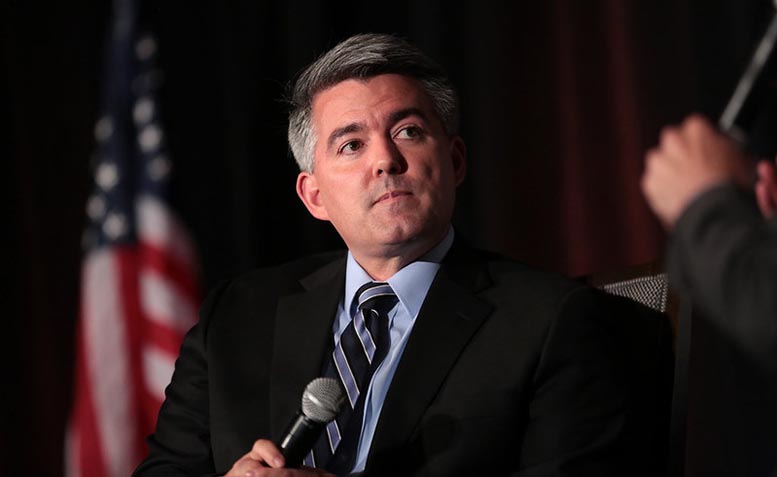Senator Cory Gardner of Colorado is the second U.S. lawmaker to ask the U.S. Department of Agriculture (USDA) to delay implementation of the 2018 Farm Bill until 2022.
In a letter to U.S. Agriculture Secretary Sonny Perdue, Gardner said the U.S. Domestic Hemp Production Program Interim Final Rule (IFR) in the Farm Bill, “as currently drafted, threatens the industrial hemp industry’s potential for Colorado’s farmers and seriously undermines this growing industry.”
‘Let industry thrive’
“I encourage you to delay the final implementation of the IFR and work directly with state regulators and the industry to ensure workable rules that allow the industry to thrive,” Gardner wrote in the letter.
New York Senator Charles Schumer earlier this month also called for delayed implementation of the Farm Bill, noting it would save money for farmers and producers at a time when they are under financial stress amid the current economic crisis brought on by COVID-19.
“The United States is now poised to transition from being a world-leading hemp importer to a world-leading hemp producer, and many look to Colorado farmers for guidance and clarity for the industry because Colorado is home to one of the longest-running state hemp programs,” Gardner wrote to Perdue.
Looking for balance
Colorado has about 2,600 active hemp registrations, and state farmers grew nearly 90,000 acres (~36,000 hectares) of hemp last year. “Colorado farmers have been at the forefront of the hemp industry, driving change and innovation across the country,” Gardner said. “The state carefully balances regulatory oversight and economic support, allowing it to have a thriving industry and be a leader to other states.”
The National Association of State Departments of Agriculture, and the National Industrial Hemp Council have also asked for a delay in implementing the Farm Bill. Should it be delayed, hemp growers and producers could continue to operate under the 2014 Farm Bill‘s pilot program. That would let them avoid what USDA estimates as $17,000 (€14,500) in compliance costs associated with the new rules.

